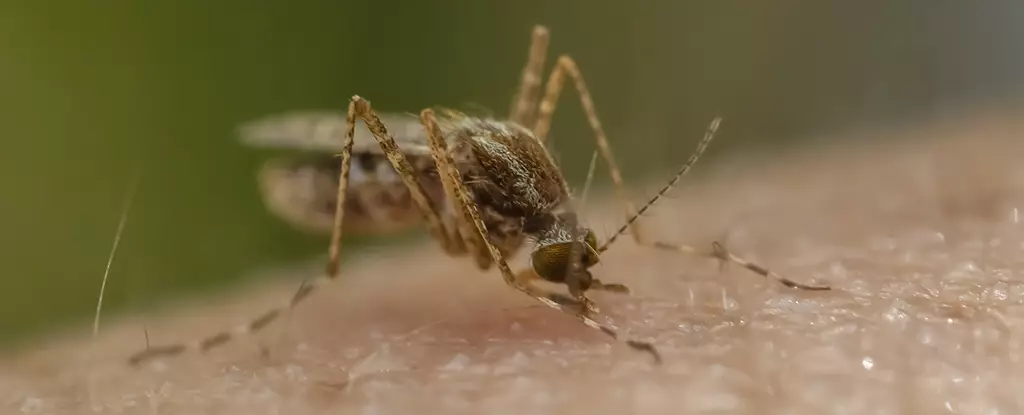Traditionally, mosquitoes are regarded as notorious vectors for malaria transmission, accountable for millions of cases globally. However, groundbreaking research suggests a radical shift in perspective: these insects may serve as beneficial agents for administering vaccines too. Recent findings from researchers affiliated with Leiden University and Radboud University in the Netherlands highlight the potential of a new generation vaccine that exploits the mosquitoes’ natural behavior to provide enhanced immunity against malaria, a disease that continues to pose significant health challenges worldwide.
This dual role of mosquitoes posits a transformative approach to malaria prevention. The innovative vaccine tested, referred to as GA2, employs a genetically modified version of the *Plasmodium falciparum* parasite. Unlike conventional vaccines, GA2 introduces a weakened pathogen through mosquito bites, wherein the parasite is incapable of maturing fully and causing the disease. This method of vaccination mimics the natural transmission route, potentially improving the vaccine’s effectiveness while reducing adverse effects that are often associated with traditional vaccines.
The results obtained from this study are particularly compelling. Out of nine young adult participants who received the new GA2 vaccine, eight demonstrated protection against malaria, a stark improvement compared to only one out of eight who received the previous version, GA1. Such results underline the efficiency of the revised formulation in producing immunity. The unique mechanism of action—where GA2 parasites take longer to mature compared to their predecessors—provides the immune system with an extended window to recognize the weakened pathogen and mount a potent response against it.
This prolonged developmental period, whereby GA2 takes nearly a week to mature in the liver compared to just 24 hours for GA1, allows for a more robust immune response. Participants exhibited an enhanced and diverse array of immune cells in reaction to GA2, which is pivotal for developing long-lasting immunity. The intricacies of this immune response are essential for ongoing research, as understanding the underlying mechanisms will assist scientists in crafting even more effective vaccines in the future.
A crucial aspect of any vaccine is its safety profile, and the preliminary data for GA2 appears reassuring. Reported side effects were predominantly minor, consisting largely of localized redness and itching at the site of the mosquito bite. Participants were also provided with a course of antimalarial drugs once data collection completed, ensuring additional precautionary measures were taken. This cautious approach highlights the researchers’ commitment to participant safety while paving the way for future clinical trials that could move toward broader implementation of the vaccine.
Despite the promising developments, the fight against malaria remains an uphill battle. The World Health Organization estimates almost 250 million malaria cases occur annually, with hundreds of thousands leading to fatalities. Current vaccination efforts typically offer limited efficacy, protecting only 50%-77% of recipients and lasting not more than a year. Therefore, the emergence of GA2 could herald a new chapter in the quest for proficient malaria prevention strategies, although mass public vaccination is still a distant goal.
Challenges Ahead and Future Prospects
While the mosquito-mediated vaccine delivery method reveals potential benefits, deploying this strategy on a population-wide scale presents certain challenges. Practical implementation, including logistical considerations of mosquito bites for vaccine administration in diverse environments, remains a significant hurdle. Researchers are also tasked with addressing the complexities involved in large-scale vaccine production and the public’s acceptance of such an innovative approach.
The advancement represented by the GA2 vaccine encapsulates the essence of scientific innovation, propelling forward the field of malaria prevention. Harnessing the natural behavior of mosquitoes not only showcases a remarkable pivot in the role of these insects but also shines a light on the promising future of vaccines. Ongoing research and development efforts will be critical in refining this approach, ultimately aiming to reduce malaria incidence and save lives across endemic regions. The journey ahead may be lengthy, but the groundbreaking findings signal important steps toward better protection against one of humanity’s oldest adversaries.

